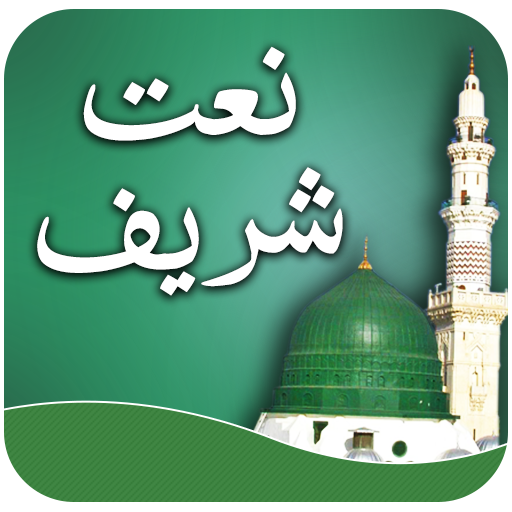

Naat is a form of Islamic music that has a long history in Muslim culture. Naat, which is a type of devotional poetry, is often recited or sung in praise of the Prophet Muhammad (peace be upon him) and other revered figures in Islam. Moreover, it has been an important part of Muslim cultural expression for centuries, influencing music and poetry in many Muslim societies around the world.
Read Top 11 Best Schools in Karachi For Quality Education
Origin of Naat
The origins of Naat can be traced back to the time of the Prophet Muhammad (peace be upon him) himself. Early Muslim poets would recite poems in praise of the Prophet as a way to honor him and express their devotion. Over time, this tradition evolved into what we now know as Naat, with poets and musicians using their talents to create beautiful and uplifting compositions that celebrate the Prophet’s life and teachings.
Naat can take many different forms, ranging from simple recitations of poetry to elaborate musical compositions with multiple singers and instruments. The poetry itself often uses rich and vivid imagery to evoke the beauty and grace of the Prophet, describing his physical appearance, his teachings, and his interactions with his followers.
Read Tips to Getting Restaurant Depot Hours Pass
Notable Aspects of Naat
One of the most notable aspects of Naat is its ability to evoke a deep sense of spirituality and devotion in listeners. Many Muslims find listening to Naat to be a powerful way to connect with their faith and feel a sense of peace and tranquility. This is especially true during the month of Ramadan when Naat is often performed at community events and gatherings.
While it is primarily associated with South Asian and Middle Eastern Muslim cultures, it has also gained popularity in other parts of the world. Today, Naat is enjoyed by Muslims from all backgrounds and is an important part of many religious celebrations and events.
Conclusion
In conclusion, Naat is a beautiful and powerful form of Islamic music that has played an important role in Muslim culture for centuries. Its ability to inspire feelings of devotion and spirituality has made it a beloved tradition among Muslims around the world. Whether recited in simple verse or performed with elaborate musical accompaniment, Naat continues to be a meaningful expression of the Muslim faith and cultural heritage.
Read Disability Rights Activist Stacey Park Milbern
Naats Music Halal or Haram?
There is a difference of opinion among Islamic scholars regarding the permissibility of naats that contain music. Some scholars believe that music is haram (prohibited) in Islam, and therefore, any form of naat that involves music is also haram. They argue that music is distracting and can lead to sinful behavior, and therefore, it should be avoided.
On the other hand, some scholars argue that certain types of music, including those used in a devotional context like naats, may be permissible in Islam. According to their belief, people can use music that is not vulgar or immoral to enhance the spiritual experience of listeners.
It’s important to note that Islamic jurisprudence is complex and nuanced, and there are many factors that can affect the permissibility of music in Islam. Ultimately, it is up to individual Muslims to seek guidance from their religious leaders and make their own informed decisions regarding the permissibility of naats that contain music.
Regardless of whether or not music is included, the essence of naats is to express love and devotion for the Prophet Muhammad (peace be upon him) and to honor his teachings. Muslims can choose to listen to naats with or without music as a way to connect with their faith and feel a sense of spiritual upliftment.
Read Best Deals on Samsonite Luggage Sets
What are Naat Lyrics?
People recite naat lyrics in praise of the Prophet Muhammad (peace be upon him) as a form of poetry. Generations have passed down naat lyrics, which have become a beloved and integral part of Islamic culture.
Distinctive Features of Naat Lyrics
Naat lyrics are known for their distinctive use of imagery and metaphor. They are particularly effective in expressing the beauty and majesty of the Prophet Muhammad. It’s one popular feature a comparison of the Prophet to a shining star in the sky. The singers use this comparison to highlight the Prophet’s ability to illuminate the darkness with his wisdom and guidance.
Common Theme in Naat Lyrics
Another common theme in naat lyrics is the love and devotion that Muslims have for the Prophet. The heartfelt verses in naats express the Prophet’s kindness, compassion, and mercy. They also highlight his role as a source of guidance and inspiration for all of humanity.
Read IELTS Fee In Pakistan 2023 – Tips For IELTS Preparation
References to the Prophet’s life and teachings are often included in many naat lyrics. These references highlight his exemplary character and unwavering commitment to justice, equality, and compassion. The verses in naats remind listeners of the timeless lessons that the Prophet’s life can teach us. They also encourage us to follow in his footsteps.
Conclusion
Naat lyrics serve as a powerful reminder of the beauty and grace of the Prophet Muhammad. They also remind us of his message of peace and love for all of humanity. Naats, whether recited in a Masjid or in a private gathering, are a testament to the enduring legacy of Islam. They reflect the deep roots of Islam in the hearts and minds of believers around the world.
Read European Scholarships for Pakistani Students
10 Most Popular Naat Sharif
| Naats | Naat Khawan |
|---|---|
| Tajdar-e-Haram | Sabri Brothers |
| Ya Nabi Salam Alayka | Maher Zain |
| Maula Ya Salli Wa Sallim | Junaid Jamshed |
| Ilahi Teri Chokhat Per | Junaid Jamshed |
| Naat-e-Rasool Maqbool | Hafiz Ahmed Raza Qadri |
| Meetha Meetha Hai Mere Muhammad Ka Naam | Aqib Farid Qadri |
| Karam Mangta Hoon | Amjad Sabri |
| Madine Ka Safar Hai Aur Main | Muhammad Owais Raza Qadri |
| Noor Wala Aaya Hai | Farhan Ali Qadri |
| Milad Raza Qadri | Dil Me Ishq-e-Nabi Ki Ho Aisi Lagan |







3 Comments